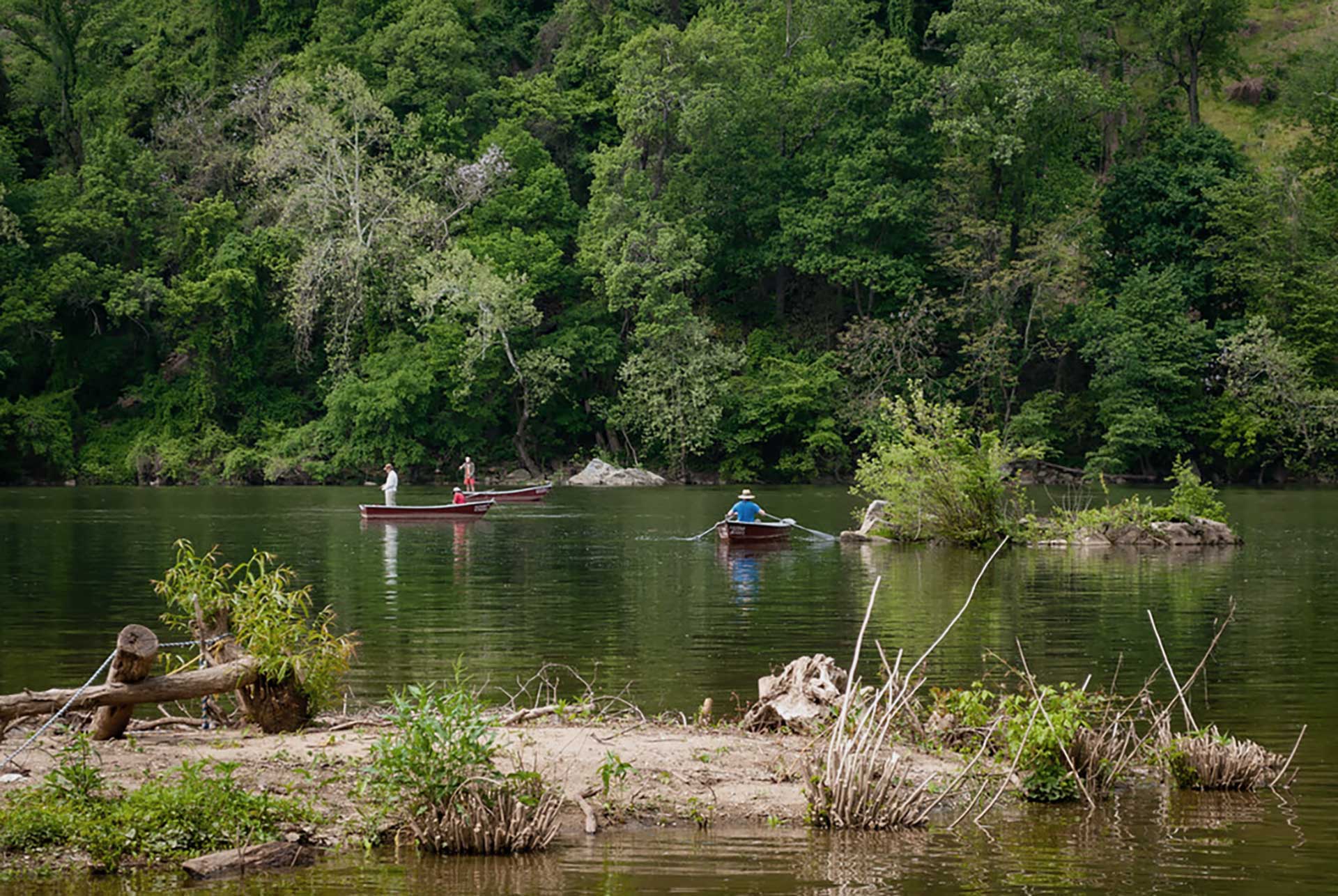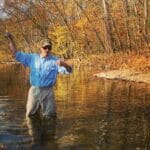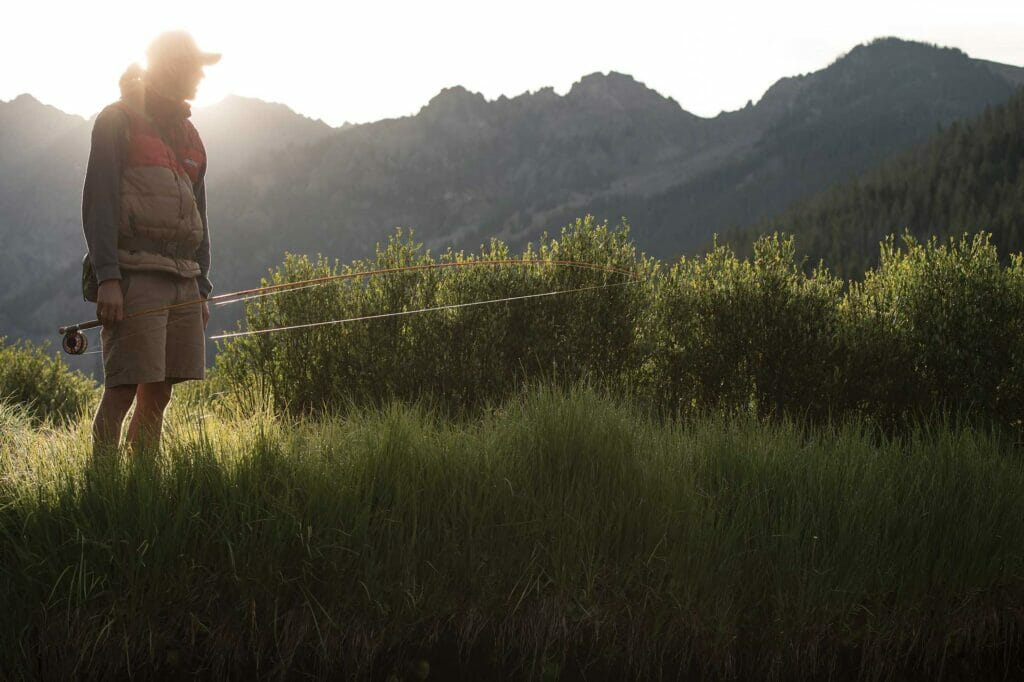My son Casey and I recently went out for shad on a cold and blustery day.When we arrived at Fletcher’s Boathouse on the Potomac River in Washington, D.C., Alex, the manager, warned us not to row too far. “I just finished bringing someone back who got stuck in the wind, and I almost didn’t make it.”
At the dock, a fishing buddy, Josh, showed us a picture of a sturgeon he snagged while jigging for striped bass. Another regular, Mike, bragged that a striped bass he landed a few days earlier was longer than his leg.
We got our boat and vests and headed to the river. Of course, we did not listen to Alex, and headed far downstream. Every so often a large splash would indicate a nearby carp. We wondered why they break the water when they are bottom feeders. We wondered could carp simply be expressing joy?
There were smaller splashes near the boat as gizzard and hickory shad pushed upstream to spawn. We knew the larger American shad would follow as the water warmed. The shad have good reason to jump. Large striped bass make their way from the ocean to the Chesapeake Bay to prey on them as they move to the Potomac to spawn. I often wonder if the splash of the shad signifies a large striper just missing dinner.
We witnessed two crows chase a bald eagle far above and wondered why the more powerful eagle wouldn’t simply turn on the crows. I told Casey that crows were my favorite bird, and that I wanted to match the tattoo of a trout on my right ankle with a crow on my left. Casey casted and waited a minute then looked back, “Dad, I think you’re too old for another tattoo.”
We watched a tree full of cormorants on the side of the river. They must have had a rule of no more than 20 to a tree. Every time an additional one would roost, one would drop to the water. We counted the seconds after they went under and marveled at the distance they could swim as they hunted for herring and small shad.
An osprey circled above us, and we saw him tuck his wings and take a shad from the water not more than 20 yards away. I told Casey about the time I saw a bald eagle harass an osprey with a fish in its talons until the osprey dropped the fish and flew away. The eagle dropped to the water, picked up the fish and flew it up to its nest.
Incidentally, Casey’s basketball team (which I coach) is called the Osprey, and the weekend before they won the championship. We spent a good while talking about the various players on the team and the season, and how we started out 1-2, but then won every game after that and won the three playoff games by a combined 50 points.
Casey’s rod bent, and he landed a nice hickory shad. He studied it for a moment and then quickly unhooked it.
We decided to head back home as Casey wanted to head to the gym, and I was taking his younger brother, Henry Trace, and a friend out for a few hours. We lifted the anchor, which is simply a rock tied to a rope. After about 10 minutes of rowing and about 10 yards of progress, Casey looked at me and said, “maybe we should have listened to Alex.”
Heavy gusts made progress back to the dock a slog. We both had that look in our eyes of people who knew they had done something they shouldn’t. I got my own workout in, and eventually, we made the dock and headed to the car.
On the ride back, we talked about how the D.C. radio stations had seemingly all become ‘80s stations, and how little new or alternative music was played anymore.
When we got home Casey’s grandmother asked, “how was the fishing?” In unison, we both replied, “awesome.”




